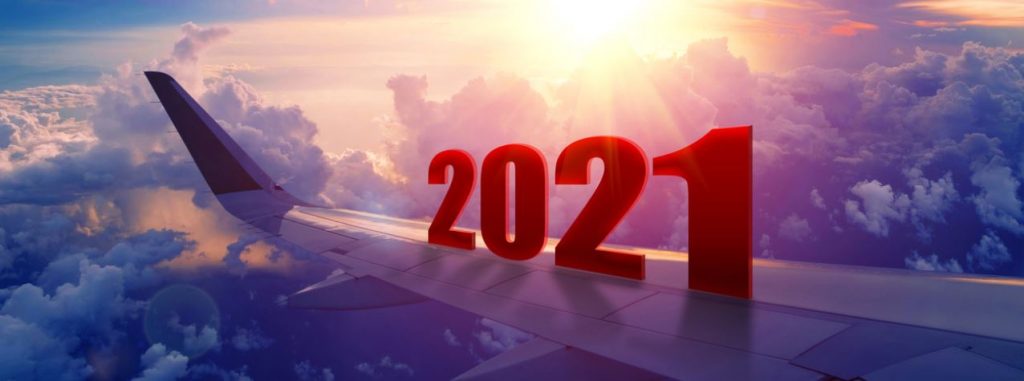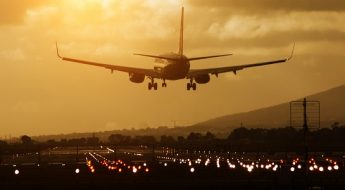
By connecting the world, aviation brings us closer and fuels economic activity, by supporting a subset of industries including travel and tourism, hospitality, logistics, retail, food, healthcare, energy, manufacturing, entertainment and e-commerce. It is almost a year since the pandemic struck and restrictions of some sort came into effect. As the global aviation industry continues to weather the storm and charts its recovery, here’s a two-part series on trends that are shaping our industry in 2021.
COVID-19 has had unprecedented impact on our world, and that’s an undisputed fact. Aviation and its allied sectors, i.e. sectors that support and rely on our industry have been adversely affected. On the upside, with the pandemic compelling airports and airlines to revisit existing business models, the pandemic could accelerate a ‘new way’ and be a catalyst for change.
Let’s first look at how COVID has reshaped travel.
1. Health Passport and VISA, please”
The word health and the focus towards it acquired a newfound purpose in every earthling’s life, as a result of the pandemic. Recently there has been an idea to unify the medical report of every individual and submit it along with the passport, in order to avoid any kind of discrepancies due to the diverse testing procedures and equipment employed across all the counties. Going forward this would be beneficial to restrict epidemics and pandemics of this nature.
2. Safety first
Safety and security have always been at the core of the aviation industry. Of late, these measures undertaken by airlines and airports have been in the spotlight. They have become more elaborate, since sanitization procedures must be incorporated into the existing security measures. Automated solutions to speed up this process are on the horizon and will persist for the years to come.
3. Winning passenger confidence
To help overcome gaps in customer satisfaction and remove the pandemic fear factor in the minds of the customers, airlines and airports have adopted a passenger-centric approach. Chatbots and robots have also been employed to support customers and collect offline information regarding their preferences. In short, the industry is aiming to provide a personalized travel experience to the passengers.
4. More domestic travel, and eco and wellness tourism
There’s a shift towards domestic travel, nature-oriented spots and wellness getaways. Business travel is slowing picking up. Road travel, a popular option before rail and air took over, is back in favor – the prime reason being traveler safety.
5. Cargo comes to the rescue
For the most part of 2020, air cargo has served as a lifeline for mankind. Flying medical supplies, food supplies and vaccines (of late), the industry has seen a surge in airfreight demand like never. By virtue of this cargo boom, some airlines have managed to survive. Hence the pandemic has changed the perception of cargo? and it is no longer seen as an offshoot of an airline, but as a core business. On the same lines, some advancements in the cargo sector such as drone delivery etc. are expected soon.
6. Chartered flights
The recent months have witnessed an influx of chartered/private jet travel, mainly due to the social distancing restrictions and the availability of airlines. These charters catered to events which were hosted in a bio-bubble, evacuating personnel who are stranded, ferrying supplies etc. and served as a breather to those anxious about air travel. From a chartered operator’s viewpoint these missions were highly beneficial and beyond their defined objectives.
7. Normalization of low-cost carriers
Since several cost carriers are trying hard to break even, it is anticipated that the governments will lend a hand to keep them afloat for at least the next few years, until the industry recovers. It is also likely that some of the low-cost carriers across the world could be merged with the mother airlines or operated by government or cease to exist.
8. Collaboration has never been more important
It is evident that in such times of disaster, collaboration and co-ordination between entities is the only life saver. Airlines are also collaborating with taxi companies like Uber etc. in order to ensure the passenger a hassle-free experience in terms of pick-up and drop-off. Airports are collaborating with health tech centers and security firms to boost passenger confidence.
9. Non-aeronautical revenue in focus
Due to the steep decline in passengers, it is not only the aeronautical revenue which has taken a hit, but also those duty-free shops, cafes, restaurants in the airports whose daily income relied heavily on the presence of passengers. In order to keep their business operational, airports and airlines are venturing into other non-aeronautical avenues such as partnering with food delivery platforms, training academies, health tech etc. to boost their revenues.
10. Restructuring routes and teams
As a result of the pandemic, many airlines are retiring certain fleet and operating only a selected set of profitable routes. In addition, some of the organization’s management structure has been restructured by redefining employees’ roles and responsibilities.
In the next part of this series, we’ll look at technologies and concepts that are gaining traction as airlines and airports prepare for a post-COVID world. In the meantime, I’d love to hear your thoughts on how the pandemic has changed our industry. Write to me at Lakshmi.SHREE@adbsafegate.com
ADB SAFEGATE provides integrated solutions that raise efficiency, improve safety, boost environmental sustainability and reduce operational costs for airports, airlines and ANSPs. The company works with airports and airlines to solve operational bottlenecks from approach to departure. Solutions encompass airfield lighting, tower-based traffic control systems, intelligent docking automation and services, as well as applying advanced IT and analytics to deliver industry-leading Total Airport Management. For more information about ADB SAFEGATE, please visit our website at adbsafegate.com.















Leave a Comment